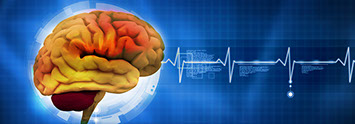
What is Neurosurgery?
Brain SpineNeurosurgery is surgery of the nervous system.
Most people think of neurosurgery as brain surgery — but it is much more!
It is the medical specialty concerned with the diagnosis and treatment of of patients with injury to, or diseases/disorders of the brain, spinal cord and spinal column, and peripheral nerves within all parts of the body. The specialty of neurosurgical care includes both adult and pediatric patients. Dependent upon the nature of the injury or disease a neurological surgeon may provide surgical and/or non-surgical care.
Brain and Nerve Surgery (Neurosurgery)
About the Department
A well-equipped center, team approach and multidisciplinary treatment approach are very important for success in brain diseases common to the community. Brain, Spinal Cord and Nerve Surgery are developing rapidly with innovations in medical technology and in parallel with this, more successful results can be obtained in diagnosis and treatment.
Services provided in the Department of Brain, Spinal Cord and Nerve Surgery
Cerebrovascular Diseases
There are endovascular, interventional neuroradiology and surgery (microsurgical) study groups for the treatment of cerebrovascular diseases. Treatment methods can be applied separately or together depending on the patient's condition.
Cerebral Vascular Aneurysms: Brain vascular disease in the form of bubbles, sudden worsening with bleeding and can cause vital losses are cerebral vascular disease.
Arterio-Venous Malformation: A vascular disease prone to bleeding, in which the arteries and veins are seen as a ball in the brain.
Carotid Stenosis: The narrowing and obstruction of the stab vein in the neck or the brain. Clot formation and stroke (paralysis) occurs and treatment should be done within hours.
Cerebral hemorrhage : It is a state of blood leakage into brain membranes or brain tissue.
Cerebral Vascular Occlusion: It is a sudden interruption of the blood flow to the brain due to the brain vascular occlusion. This table is known as stroke or stroke and should be treated quickly. It is possible to open the occluded vein by endovascular methods, to provide brain blood supply by microsurgery or to relieve trapped brain tissue.
Brain and Spinal Tumors
Microsurgical and endoscopic techniques are used in both adult and childhood brain and nerve tumors. Patients are evaluated by the council consisting of brain and nerve surgeon, radiation oncologist, medical oncologist and neuroradiologist. In some tumors, long-term chemotherapy (drug therapy) and / or radiotherapy (radiation therapy) are planned. Operations, especially in pituitary tumors, especially in skull base tumors, are performed with the participation of ENT specialist in the surgical team.
Spine Diseases
The spine; In addition, traumatic injuries such as accidents and injuries, spinal cord narrowing, and old-fashioned glide are also performed. And also; Diseases such as lumbar and neck hernia are treated by the brain and nerve surgeons. In the ın Minimally invasive spine center oskop where the surgical procedures of the hernia, neck hernia and spine are performed by microsurgical and endoscopic surgery, rehabilitation services are planned together with the physical therapy and rehabilitation department. Minimally invasive pain interventions, ie non-operative interventional therapies for pain, are maintained in this discipline.
Childhood Brain and Nerve Diseases (Pediatric Neurosurgery)
Surgical intervention is applied to congenital and acquired head and spine diseases. These include tumors, vascular diseases, brain hydration, which is defined as brainwashing, and izm spinal dysraphism ef, which is more common in the neonatal period.
Traumas (Stroke or accidental brain injury)
Emergency interventions are applied to patients with head trauma without wasting time. Patients are treated with the intensive care unit. They are also referred to physical therapy and rehabilitation programs simultaneously. The aim is to eliminate the life risk and improve the quality of life. Rapid diagnosis, diagnosis and care of all types of trauma (head trauma, spine trauma, etc.) that can develop due to various accidents can be performed by the brain, spinal and neurosurgical team working together with the emergency service and intensive care unit for 24 hours.
Treatment of Functional Diseases
In patients with reduced quality of life such as Parkinson's disease and similar involuntary movement disorders, especially brain cell application is performed. The treatment of spasticity resulting from congenital causes or severe head trauma is carried out by ors selective dorsal rhizotomy as or sp baclofen pump placement da surgeries. Epilepsy, epilepsy surgery surgeries are planned in case of epilepsy which cannot be achieved with medication. The study group, which is formed by the participation of neurologists, psychiatrists and physical therapists on the necessity of surgical treatment for all functional diseases or whether it will be useful, decides by making the necessary evaluations.